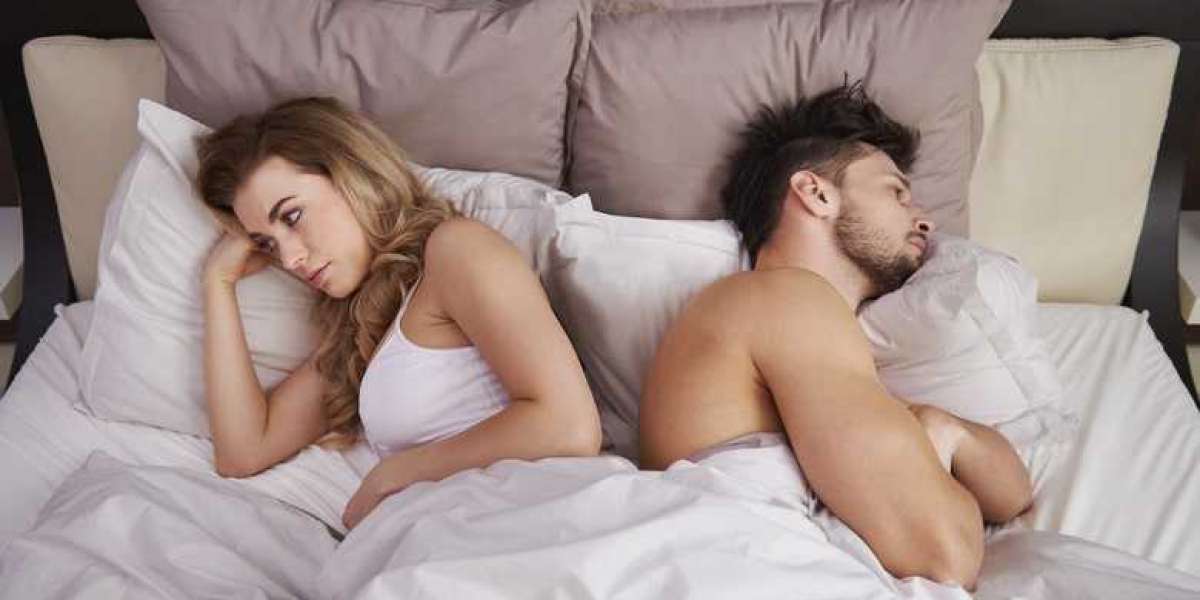Introduction
In our fast-paced world, sleep often takes a back seat to work, entertainment, and other commitments. But what if your lack of sleep is affecting more than just your mood and energy levels? Could it also be the culprit behind erectile dysfunction (ED)? The connection between sleep and sexual health might surprise you. In this article, we’ll dive deep into the link between insufficient sleep and ED, and explore how medications like Vidalista 60 can help manage these issues.
The Importance of Sleep for Overall Health
Sleep is not just a period of rest; it’s a critical function that affects nearly every aspect of our well-being. From cognitive function to physical health, sleep plays a crucial role in maintaining the body's equilibrium. It helps regulate vital processes such as hormone production, tissue repair, and memory consolidation. Without adequate sleep, the body’s ability to function optimally diminishes, leading to a range of health issues, including erectile dysfunction.
Understanding Erectile Dysfunction (ED)
Erectile dysfunction, commonly known as ED, is the inability to achieve or maintain an erection sufficient for satisfactory sexual performance. It’s a condition that affects millions of men worldwide and can be caused by a variety of factors, including age, underlying health conditions, psychological issues, and lifestyle choices. ED can be a frustrating and distressing condition, significantly impacting a man’s quality of life and self-esteem.
The Connection Between Sleep and Sexual Health
You might wonder how something as simple as sleep could have such a profound effect on sexual health. The truth is, sleep is intimately connected to sexual performance. During sleep, the body goes through various stages, including REM (rapid eye movement) sleep, which is particularly important for hormonal regulation. Testosterone, the primary male sex hormone, is produced mostly during sleep. When sleep is disrupted or insufficient, testosterone levels can drop, leading to decreased libido and erectile difficulties.
Impact of Sleep Disorders on Erectile Function
Sleep disorders such as sleep apnea and insomnia are closely linked to erectile dysfunction. Sleep apnea, a condition where breathing repeatedly stops and starts during sleep, can lead to lower oxygen levels in the blood. This condition not only affects sleep quality but also reduces blood flow, which is essential for achieving an erection. Similarly, insomnia, characterized by difficulty falling or staying asleep, can cause fatigue and stress, both of which contribute to ED.
Hormonal Imbalance Due to Lack of Sleep
Testosterone plays a vital role in male sexual health, influencing libido, erectile function, and overall vitality. However, sleep deprivation disrupts the body’s hormonal balance, leading to lower testosterone levels. This hormonal imbalance can result in reduced sexual desire and performance issues. Additionally, lack of sleep increases the production of cortisol, a stress hormone that further interferes with testosterone production.
Stress, Anxiety, and Erectile Dysfunction
Poor sleep is a known contributor to stress and anxiety, both of which are major factors in erectile dysfunction. When the body doesn’t get enough rest, the mind becomes more susceptible to stress, creating a vicious cycle. Stress leads to poor sleep, which in turn exacerbates stress, ultimately impacting sexual performance. Managing stress through better sleep hygiene and relaxation techniques can be an effective way to combat ED.
Lifestyle Factors That Contribute to ED
Lifestyle choices such as diet, exercise, and substance use can significantly affect both sleep and erectile function. A poor diet lacking in essential nutrients, combined with a sedentary lifestyle, can lead to obesity, which is a known risk factor for both sleep disorders and ED. Additionally, excessive alcohol consumption and smoking can impair sleep quality and decrease blood flow, making it more difficult to achieve and maintain an erection.
How Sleep Deprivation Affects the Cardiovascular System
Erectile dysfunction is often a symptom of underlying cardiovascular issues. Sleep deprivation has been shown to negatively affect heart health by increasing blood pressure, inflammation, and cholesterol levels. A healthy cardiovascular system is crucial for maintaining the blood flow necessary for an erection. Thus, improving sleep quality can have a direct positive impact on both heart health and erectile function.
Case Studies: Real-Life Impact of Sleep on Erectile Function
Several studies have established a link between sleep duration and erectile dysfunction. For instance, research has shown that men who sleep less than 5 hours a night are at a higher risk of developing ED compared to those who get a full 7-8 hours of sleep. Personal testimonials from men who have experienced ED due to poor sleep also highlight the importance of addressing sleep issues as part of an overall treatment plan.
Managing Erectile Dysfunction: The Role of Medication
For many men, medications like Vidalista 60 offer a reliable solution to erectile dysfunction. Vidalista 60 works by increasing blood flow to the penis, helping to achieve and maintain an erection during sexual activity. While these medications can be effective, it’s important to address underlying issues such as sleep deprivation to achieve long-term results.
The Role of a Healthy Sleep Routine
Improving sleep quality is one of the most effective ways to enhance sexual health. Establishing a consistent sleep routine, avoiding caffeine and heavy meals before bedtime, and creating a relaxing sleep environment can all contribute to better sleep. As sleep improves, you may notice an increase in energy levels, mood, and overall sexual performance.
Natural Remedies to Support Erectile Function and Sleep
In addition to medications like Vidalista 60, natural remedies can also support both sleep and erectile function. Herbal supplements such as ginseng and ashwagandha are known for their ability to reduce stress and enhance sexual health. Additionally, practicing relaxation techniques like deep breathing, meditation, and yoga can help improve sleep quality and reduce the symptoms of ED.
Seeking Professional Help
If you’re struggling with erectile dysfunction and sleep issues, it’s important to consult a healthcare professional. A doctor can help determine the underlying causes of your symptoms and recommend appropriate treatments, which may include medications, lifestyle changes, or therapy. Addressing both sleep and sexual health concerns holistically can lead to better overall outcomes.








